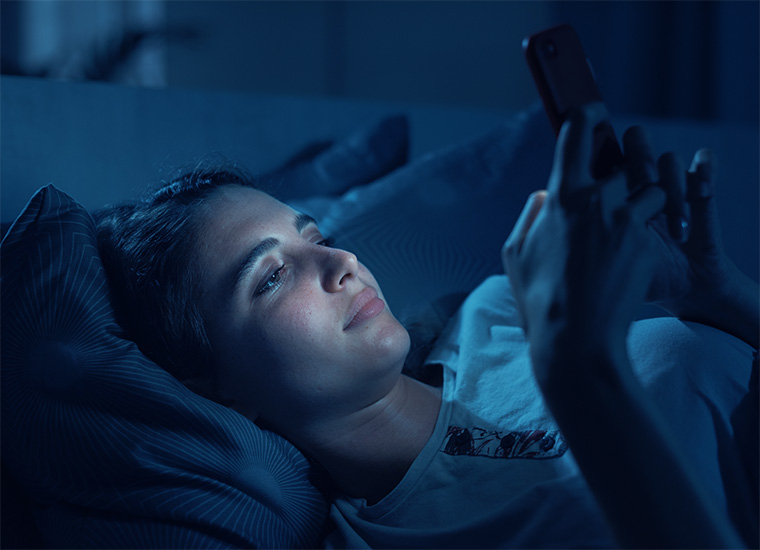![[Translate to Anglais:] IMAGE: CHUV](https://www.invivomagazine.ch/fileadmin/_processed_/8/1/csm_Virginie_Bayon_1_6adae6307b.jpg)
WHY DO YOUNG SWISS WOMEN SLEEP POORLY?
Publié il y a 1 mois
28.03.2025
Partager

Historically, sleep disorders are found in older population groups, especially among women. They are largely due to menopause and the increased risk of disease with age, at the respiratory level, or because of depression, for example. However, in its latest Health Survey, the Federal Statistical Office (FSO) noted a new phenomenon: the increase in pathological disorders among women between the ages of 15 and 39 exceeds that observed among women over 40. Rising from 6% to 9.5% between 1997 and 2022 for the youngest, while for women over 40, this rate rose from 8% to 10% during the same period.
These pathological disorders, which are defined by restless sleep and waking up several times per night, are problematic. They are associated with an increased risk of cardiovascular disease and adverse mental health effects. “It should be noted, however, that it is sometimes difficult to disentangle causes from consequences, as they tend to feed each other,” according to Virginie Bayon, senior medical officer at CHUV’s Centre for Investigation and Research in Sleep.
Screens are the culprit
For the specialist, this increase among young women across Switzerland confirms her observation on the ground. “The main problem is exposure to screens. Media and social networks eat into our sleep time.” According to the FSO, people who spend more than two hours a day watching television or videos, on social networks or using their computer, smartphone or tablet for other purposes suffer from moderate and pathological sleep disorders. Prevalence may be up to eight percentage points higher in this population than in the group that does not exceed the two-hour limit of screen use.
Another possible explanation, according to the pediatric sleep specialist, is stress and anxiety. “Even if a bias in reporting cannot be excluded, men report less sadness and anhedonia—the loss of the ability to feel pleasure—than women.” Earlier puberty in adolescent girls may play a role in this. Virginie Bayon also points to academic pressure, cultural expectations, the weight of physical appearance and the need to perform, all elements that weigh more heavily on young women’s shoulders.
Restoring the balance
The link between sleep deprivation and mental health problems has been known for a long time. However, screens add complexity to this dynamic. “Some young people use them to calm their anxiety, explains the doctor. We know that the blue light they emit has a major impact on our biological clock.” And who says screens before going to bed, says possible sleep disturbance, and who says insomnia says anxiety, and therefore, use of screens, and so forth.
“For young women, as for all young people, one of the first tips to improve sleep is to stop using screens one to two hours before bedtime.” They should also work towards an overall healthier lifestyle. “The level of physical activity, the choice of diet, or the consumption of stimulants, alcoholic beverages and tobacco or cannabis are reviewed in order to restore balance.” This work can only be done with the cooperation of patients, regardless of their age.
![[Translate to Anglais:] IMAGE: CHUV](https://www.invivomagazine.ch/fileadmin/documents/images/sommeil_femmes/BAYON_Virginie_20200707_023.jpg)
BIOGRAPHY
Virginie Bayon is a senior medical officer at the CHUV’s Centre for Investigation and Research in Sleep. She is particularly concerned with people who suffer from sleep disorders related to irregular working hours. She has also trained in sleep disorders in children and developed a specific consultation in pediatric sleep with the pediatric department.


![[Translate to Anglais:] IMAGE: ERIC DUBOST/ALAMY](https://www.invivomagazine.ch/fileadmin/_processed_/6/c/csm_Olga_Sidiropoulou_c_Eric_Dubost_slash__Alamy_2294874aef.jpg)
![[Translate to Anglais:] [Translate to Anglais:]](https://www.invivomagazine.ch/fileadmin/_processed_/a/3/csm_LN_INVIVO_Stress_02_140b28d03c.jpg)